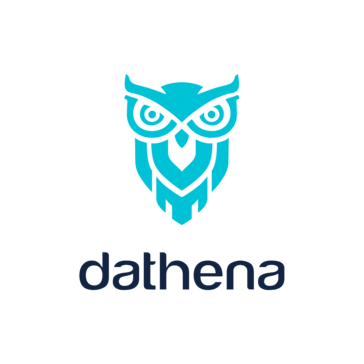3.75
Dathena Privacy Review
Read our in-depth Dathena Privacy review. Analyze its features, security, pricing, support, recent updates, and overall value for money. Decide if it’s right!

Introduction to Dathena Privacy
Welcome to this Dathena Privacy review, designed to provide a clear overview of this powerful data privacy and security solution. Understanding Dathena Privacy begins with recognizing its role in helping organizations automatically discover, classify, and protect sensitive data across complex environments. This introduction covers the Dathena Privacy basics, setting the stage for a deeper dive into its capabilities and how it addresses modern data governance challenges effectively. Explore the core concepts before we detail the significant benefits of Dathena Privacy. Getting started with Dathena Privacy involves leveraging its AI-driven engine to gain visibility and control over your data landscape, ensuring compliance and mitigating risks. This platform streamlines data protection workflows, identifies potential privacy violations, and offers actionable insights, forming a crucial component of a robust security strategy for businesses handling sensitive information.
Comprehensive overview and target audience
Dathena Privacy offers a robust platform designed to automate data discovery, classification, and protection processes. Leveraging sophisticated artificial intelligence and machine learning algorithms, it helps organizations navigate the complex landscape of data privacy regulations like GDPR, CCPA, and others. Its primary goal is to provide visibility into sensitive data across diverse environments, enabling proactive risk mitigation and ensuring compliance.
The solution is particularly suited for medium to large enterprises, especially those operating in highly regulated sectors such as finance, healthcare, and telecommunications. Key stakeholders who find significant value include Chief Information Security Officers, Data Protection Officers, Compliance Managers, and IT administrators. These roles benefit from Dathena Privacy’s ability to automate manual tasks, reduce human error, and provide actionable insights into data risk posture.
Central to its offering are the comprehensive Dathena Privacy security features. These include automated data classification based on sensitivity and context, risk scoring for prioritized remediation, and policy enforcement capabilities. The platform aids in identifying and securing personal identifiable information PII and other sensitive data types, ensuring appropriate controls are applied consistently across the organization’s data footprint.
The platform is not static; Dathena Privacy updates and new features are released regularly. This commitment ensures the software stays ahead of evolving regulatory requirements and emerging data security threats. Users benefit from continuous improvement, enhancing the tool’s effectiveness and usability over time. These updates often include refinements to the AI models, expanded data source connectors, and enhanced reporting functionalities.
When considering a Dathena Privacy pricing comparison against competitors, organizations often find its capabilities justify the investment. While specific costs vary based on deployment size and required modules, the focus is on delivering tangible Dathena Privacy value for money. This value stems from reduced compliance costs, minimized risk of data breaches and associated fines, and improved operational efficiency in data management. The potential return on investment through enhanced data governance and security is a significant factor for prospective buyers.
To ensure successful adoption and ongoing use, comprehensive Dathena Privacy support and training resources are available. These typically include detailed documentation, online knowledge bases, webinars, and access to technical support teams. Tailored training sessions may also be offered, helping users maximize the platform’s potential and effectively manage their organization’s data privacy obligations. This support structure is crucial for empowering teams to utilize the tool effectively from day one.
User experience and functional capabilities
The user experience and functional capabilities of Dathena Privacy are central to its effectiveness as a data governance tool. Initial Dathena Privacy user experience insights often highlight the platform’s comprehensive dashboard, which provides a centralized view of data risk posture and compliance status. While powerful, the depth of features means new users may require some initial orientation. Understanding how to use Dathena Privacy effectively involves familiarizing oneself with its core workflows: configuring data discovery scans across various repositories, defining classification policies based on sensitivity and regulatory requirements, and interpreting the risk analysis reports.
Functionally, the platform excels in automated data discovery and classification. It uses AI to identify sensitive information like PII across structured and unstructured data sources, reducing manual effort significantly. Key capabilities include:
- Automated sensitive data discovery across cloud, on premises, and endpoint environments.
- AI driven data classification based on context, content, and metadata.
- Risk scoring and prioritization to focus remediation efforts on the most critical issues.
- Policy enforcement suggestions and integration points for data protection controls.
- Detailed reporting dashboards for compliance audits and security posture assessment.
The Dathena Privacy implementation guide typically outlines a phased approach, starting with connecting data sources, followed by policy configuration, initial scanning, and subsequent fine tuning of the classification models. This process requires collaboration between IT, security, and compliance teams. While powerful, some common problems with Dathena Privacy reported by users involve the initial complexity of configuring policies precisely to match organizational needs and the occasional need for manual verification of AI driven classifications, especially for nuanced data types. Fine tuning the AI models over time generally mitigates these issues.
Integrating Dathena Privacy with other tools is a crucial functional aspect. It often connects with existing security information and event management SIEM systems, data loss prevention DLP solutions, and workflow automation platforms. This integration allows organizations to incorporate Dathena’s insights into broader security operations and incident response processes, enhancing overall data protection effectiveness. Regular Dathena Privacy updates and new features continually enhance these integration capabilities and refine the user experience, addressing evolving threats and regulatory landscapes. Adhering to best practices for utilizing Dathena Privacy, such as regularly reviewing classification results, updating policies in line with regulatory changes, and leveraging the risk scores for prioritized action, ensures organizations maximize the platform’s value and maintain robust data governance. Continuous training and engagement with support resources are also recommended practices for sustained success.
Who should be using Dathena Privacy
Dathena Privacy is primarily designed for medium to large enterprises grappling with significant volumes of data and complex regulatory obligations. Organizations operating within highly regulated sectors such as finance, healthcare, and telecommunications will find its capabilities particularly relevant. These industries face stringent requirements for data protection and privacy, making automated solutions like Dathena Privacy essential for maintaining compliance and mitigating risks associated with sensitive information.
Key stakeholders within these organizations who derive substantial benefit include several core roles. Chief Information Security Officers leverage it for enhanced data visibility and control across the enterprise. Data Protection Officers depend on it for ensuring and demonstrating compliance with crucial regulations like GDPR and CCPA. Compliance Managers utilize its features for audit readiness, streamlined reporting, and consistent policy enforcement. IT Administrators find value in its ability to help manage diverse data repositories securely and efficiently. Essentially, any role deeply involved in data governance, risk management, or compliance operations will find Dathena Privacy a valuable strategic asset.
A typical Dathena Privacy use case scenario involves a financial institution needing to automatically locate and classify customer financial records and personally identifiable information scattered across various systems including cloud storage, legacy databases, and employee endpoints. This helps them meet strict regulatory deadlines and data residency requirements. Another common scenario is a healthcare provider identifying high risk data concentrations containing patient health information PHI to prioritize encryption controls and access restrictions, thereby reducing the potential impact of data breaches and ensuring HIPAA compliance. The platform helps transform these complex, critical tasks into more manageable, automated processes.
Adopting Dathena Privacy empowers these users to transition from manual, often inconsistent, and error prone methods towards efficient, AI driven data discovery and classification. It provides the clarity needed to understand precisely where sensitive data resides, who has access, and its compliance status against internal policies and external regulations. Implementing Best practices for Dathena Privacy is crucial for success; this includes regularly reviewing AI driven classification accuracy, updating policies dynamically as regulations evolve, and actively leveraging risk scoring for prioritized remediation. Following these practices ensures organizations maximize the platform’s effectiveness and maintain a strong, proactive data protection posture over time.
Unique Features offered by Dathena Privacy
Dathena Privacy distinguishes itself through significant customization options and unique features designed to tailor data protection precisely to organizational needs. The platform allows extensive configuration of its core functions. Users can define specific data discovery parameters, create custom classification rules reflecting internal policies alongside regulatory mandates like GDPR or CCPA, and adjust risk scoring algorithms to prioritize remediation efforts based on their specific threat landscape and business impact assessments. This flexibility is key for Customizing Dathena Privacy for business growth; it ensures that data governance strategies evolve seamlessly alongside the organization, adapting to new data types, sources, and compliance requirements without requiring a complete overhaul.
Unique strengths lie in Dathena’s sophisticated AI and machine learning engine. Unlike simpler pattern matching tools, it analyzes data contextually, significantly improving the accuracy of identifying and classifying sensitive information, especially within unstructured data formats where critical details are often hidden. This advanced classification capability reduces false positives and ensures that protection measures are applied appropriately. The platform also provides detailed insights into data lineage and risk concentration, offering a clearer picture of potential vulnerabilities across complex IT environments including cloud, on premises systems, and endpoints.
While Dathena Privacy is primarily geared towards medium to large enterprises due to its comprehensive nature and resource requirements, the underlying principles of tailored data protection are universally important. The level of investment and complexity may make Dathena Privacy for small businesses less feasible currently, but the focus on adaptable policy enforcement and risk management highlights best practices applicable to organizations of all sizes seeking robust data security. Smaller entities might seek different solutions better scaled to their operational scope and budget constraints.
Furthermore, Integrating Dathena Privacy with other tools is a notable feature enhancing its utility. The platform offers APIs and connectors designed to seamlessly share its findings with existing security infrastructure. This includes Security Information and Event Management SIEM systems for centralized monitoring, Data Loss Prevention DLP solutions for enforcing data handling policies, and workflow automation platforms for streamlining incident response and remediation processes. This integration capability allows organizations to incorporate Dathena’s deep data insights into their broader security ecosystem, creating a more cohesive and effective defense against data breaches and compliance failures.
Pain points that Dathena Privacy will help you solve
Many organizations today face significant hurdles in managing their data privacy and security effectively. The sheer volume and distribution of data across complex IT environments create blind spots, increase risk exposure, and make compliance incredibly challenging. If you are struggling with identifying, classifying, and protecting sensitive information scattered across clouds, databases, and endpoints, Dathena Privacy offers targeted solutions.
Dathena Privacy directly addresses several critical operational and compliance challenges:
- Lack of Visibility into Sensitive Data: Discovering precisely where personal identifiable information PII, financial records, intellectual property, or other sensitive data resides is often a manual, incomplete process. Dathena automates discovery across your entire data landscape, providing crucial visibility.
- Inefficient and Error Prone Manual Classification: Relying on employees to manually classify vast amounts of data is slow, inconsistent, and prone to human error. Dathena leverages AI for accurate, automated classification based on content and context, freeing up valuable resources.
- Complex Compliance Obligations: Navigating the intricate requirements of regulations like GDPR, CCPA, HIPAA, and others is a constant burden. Dathena helps you monitor your compliance posture, identify gaps, and generate reports needed for audits.
- Difficulty Prioritizing Security Risks: Knowing which data vulnerabilities pose the greatest threat can be overwhelming. Dathena provides risk scoring, enabling you to focus remediation efforts on the most critical areas first.
- Inconsistent Policy Enforcement: Ensuring data protection policies are applied uniformly across all data types and locations is difficult to manage manually. Dathena aids in suggesting and monitoring the application of appropriate security controls.
- Scaling Data Governance with Growth: As your organization expands and data volumes increase, manual processes simply cannot keep pace. **Customizing Dathena Privacy for business growth** ensures your data protection strategy remains effective and adaptable to new challenges.
- Siloed Security Efforts: Data privacy insights often fail to integrate with broader security operations. **Integrating Dathena Privacy with other tools** like SIEM and DLP platforms creates a more unified and responsive security ecosystem.
While Dathena is primarily aimed at medium to large organizations due to its comprehensive feature set, the pain points it addresses are relevant across **Dathena Privacy for different businesses sizes**. Understanding and controlling sensitive data is a universal need. By automating discovery, classification, and risk assessment, Dathena Privacy significantly reduces the burden and risk associated with modern data management, allowing you to operate more securely and confidently.
Scalability for business growth
Scalability is a critical factor for any organization anticipating growth. As your business expands, so does your data footprint, regulatory exposure, and the complexity of managing sensitive information effectively. Dathena Privacy is engineered with scalability at its core, ensuring that your data protection capabilities can keep pace with your evolving business needs without becoming a bottleneck or requiring a complete system overhaul. The platform’s architecture is designed to handle increasing volumes of data and user activity seamlessly.
Whether you are adding new cloud repositories, integrating acquired business units, or onboarding more employees, Dathena Privacy adapts. Its ability to connect to a wide array of data sources and process vast amounts of information efficiently means it can grow alongside your infrastructure. This inherent flexibility is essential. Customizing Dathena Privacy for business growth allows you to adjust policies, classification rules, and risk parameters dynamically. This ensures that your data governance framework remains relevant and effective as your operational landscape changes, reflecting new data types, compliance requirements, or internal risk priorities.
Furthermore, the reliance on advanced AI and automation significantly enhances scalability. Unlike manual processes that require proportional increases in human resources as data grows, Dathena’s automated discovery, classification, and risk assessment capabilities manage the increased load efficiently. This reduces the operational burden and allows your security and compliance teams to focus on strategic initiatives rather than getting bogged down in routine tasks. Customizing Dathena Privacy for business scalability means tailoring these automated processes to fit your specific growth trajectory, ensuring consistent protection and compliance without sacrificing performance. This makes Dathena Privacy a strategic investment, supporting sustainable growth by providing a robust and adaptable foundation for long term data governance and security.
Final Verdict about Dathena Privacy
Dathena Privacy emerges as a powerful and sophisticated platform dedicated to automating critical data privacy and security tasks. Its core strength lies in leveraging advanced artificial intelligence to discover, classify, and protect sensitive data across complex organizational environments, including cloud and on premises systems. For medium to large enterprises, particularly those operating within heavily regulated sectors like finance and healthcare, Dathena provides essential capabilities for navigating intricate compliance landscapes such as GDPR, CCPA, and HIPAA effectively.
The platform effectively addresses significant pain points many organizations face:
: Overcoming the lack of visibility into where sensitive data resides.
: Replacing inefficient and error prone manual classification processes.
: Simplifying the burden of meeting diverse and evolving regulatory requirements.
: Enabling data driven prioritization of security risks for focused remediation.
Its extensive customization options allow organizations to tailor discovery parameters, classification rules, and risk scoring algorithms precisely. This ensures the solution aligns tightly with specific business needs and internal policies. Furthermore, Dathena Privacy is engineered for scalability, readily handling increasing data volumes and expanding infrastructure. This adaptability is crucial for businesses anticipating growth, ensuring data protection strategies remain effective over time. While the user experience is comprehensive, offering deep insights, the platform’s depth means initial setup and configuration may require dedicated resources and planning. Integration capabilities with existing security ecosystems like SIEM and DLP tools amplify its value, creating a more unified security posture.
Our Final verdict on Dathena Privacy is decidedly positive. It stands out as a robust, AI powered solution for organizations committed to proactive data governance and comprehensive risk mitigation. The investment, though potentially significant, is often justified by the tangible benefits: reduced compliance burdens, minimized risk of costly data breaches, and enhanced operational efficiency in data management. While perhaps less suited for very small businesses due to its scope, for its target audience, Dathena Privacy offers a compelling and effective approach to mastering modern data privacy challenges.
Advantage
Disadvantage
Automated sensitive data discovery and classification
Identifies and prioritizes critical privacy risks
Streamlines data privacy regulation compliance efforts
Provides actionable insights for data risk remediation
Clear dashboards and reporting for stakeholders/audits
Disadvantage
Complex initial implementation and setup
Needs considerable configuration for best performance
Potentially high cost for smaller businesses
Requires dedicated staff for ongoing management
Potential integration challenges with legacy systems
Rating
Web Based
Windows
Mac OS
Linux
Android
iOS
Phone Support
Email/Help Desk
AI Chat Bot
Live Support
24/7 Support
Forum & Community
Knowledge Base
Live Online
Documentation
Videos
In Person
Webinars
Company: Proofpoint, Inc.
Email: info@proofpoint.com
Address:
925 W Maude Ave, Sunnyvale, CA 94085, USAPhone: #ERROR!
Implementation
Web Based
Windows
Mac OS
Linux
Android
iOS
Support
Phone Support
Email/Help Desk
AI Chat Bot
Live Support
24/7 Support
Forum & Community
Knowledge Base
Training
Live Online
Documentation
Videos
In Person
Webinars
Group text
Company: Proofpoint, Inc.
Email: info@proofpoint.com
Address:
925 W Maude Ave, Sunnyvale, CA 94085, USA
Phone: #ERROR!
Alternative Products
Web Based, Windows, Mac OS, Linux
Documentation, Videos, Live Online, Webinars
Phone Support, Email/Help Desk, 24/7 Support, Forum & Community, Knowledge Base
Frequently Asked Questions
What exactly is Dathena Privacy Review?
Dathena Privacy Review is a specialized assessment service, often powered by AI-driven data discovery and classification technology, designed to provide organizations with deep insights into their data privacy posture, risks, and compliance status.
How can Dathena Privacy help me?
It empowers you by identifying where sensitive and personal data resides across your digital landscape (structured, unstructured, cloud, on-prem), assessing the associated privacy risks (like non-compliance with GDPR, CCPA, etc.), and providing actionable intelligence to prioritize remediation efforts, reduce potential fines, and enhance overall data governance.
Who is Dathena Privacy Review designed for?
Dathena Privacy Review is primarily designed for Data Protection Officers (DPOs), Chief Information Security Officers (CISOs), compliance managers, legal counsel, and IT leaders within organizations that handle personal, sensitive, or regulated data and need to understand their exposure and meet regulatory obligations.
What kind of data does the review analyze?
The review analyzes a wide range of data types, focusing particularly on Personally Identifiable Information (PII), sensitive personal data (SPD), financial data, health information (PHI), intellectual property, and other forms of regulated or confidential data stored in various formats like documents, emails, databases, and cloud repositories.
Is Dathena Privacy worth it?
For organizations committed to robust data privacy and compliance, Dathena Privacy Review is generally considered highly valuable; it offers crucial visibility into often-hidden risks, helps avoid significant financial penalties and reputational damage associated with data breaches or non-compliance, and enables more informed strategic decisions regarding data protection investments.
What are the key deliverables of the review?
Key deliverables typically include a comprehensive risk assessment report detailing findings, a sensitive data inventory or map showing locations and types of data discovered, prioritized, actionable recommendations for mitigation and compliance enhancement, and often executive summaries or dashboards visualizing the organization’s privacy risk profile.
How long does the Dathena Privacy Review process typically take?
The duration of a Dathena Privacy Review can vary significantly based on the scope, the volume of data, and the complexity of the IT environment, but typically ranges from a few weeks to a couple of months to ensure thoroughness.
How is my data kept secure during the review?
Your data’s security is maintained through rigorous protocols, often including secure data transfer methods, encryption (in transit and potentially at rest depending on the process), strict access controls limited to authorized personnel, adherence to strong data handling policies, and execution of Non-Disclosure Agreements (NDAs) to guarantee confidentiality and integrity throughout the assessment.






